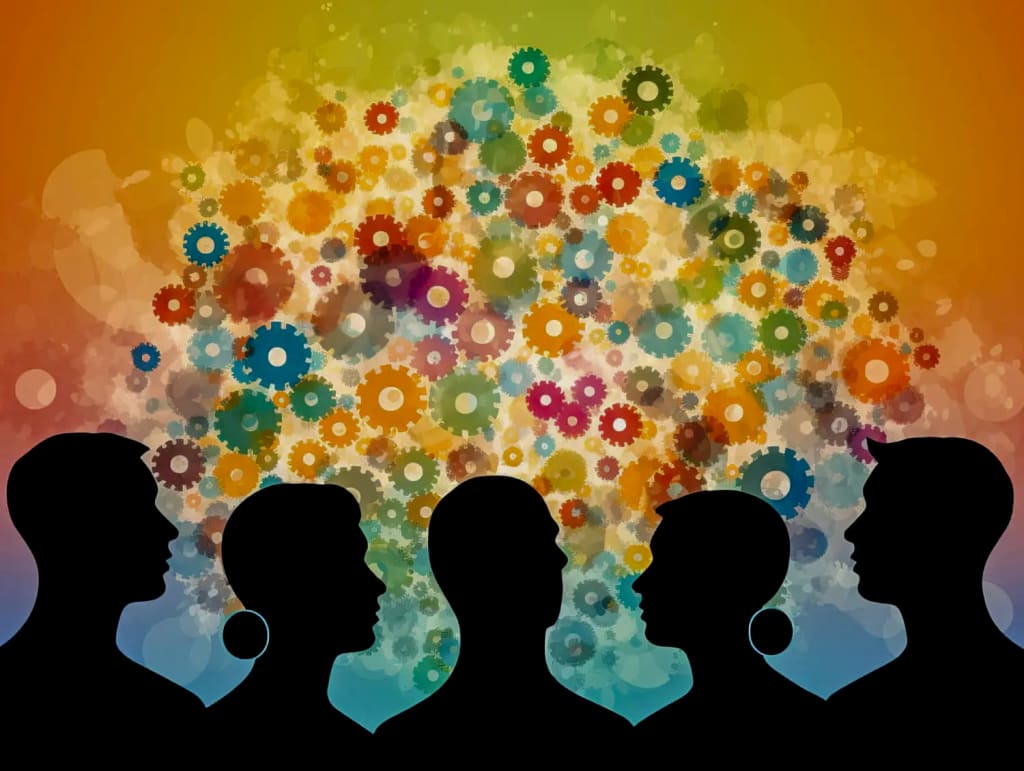Unraveling the Mysteries of Human Behavior: A Journey into Evolutionary Psychology
Evolutionary psychology offers a unique perspective on human behavior, exploring how our evolutionary history has shaped the psychological mechanisms that underlie our thoughts, feelings, and behaviors. From the adaptive functions of emotions to the evolution of social behavior, evolutionary psychology provides valuable insights into the origins and dynamics of human nature. In this exploration, we delve into the fascinating realm of evolutionary psychology, shedding light on the factors that have shaped who we are as a species.

The Evolutionary Roots of Behavior
At the heart of evolutionary psychology lies the recognition that human behavior is the product of millions of years of evolution. Our ancestors faced a myriad of challenges in their environments, from finding food and shelter to navigating social relationships and avoiding predators. Evolutionary psychologists argue that many of the psychological mechanisms that govern human behavior evolved to help our ancestors survive and reproduce in these ancestral environments. By understanding the adaptive functions of these psychological mechanisms, we can gain insight into the behaviors that are common across cultures and time periods.
Adaptations and Psychological Mechanisms
Evolutionary psychology posits that many aspects of human behavior are the result of adaptations – traits that evolved because they conferred a reproductive advantage to individuals who possessed them. These adaptations include not only physical traits, such as opposable thumbs and bipedalism, but also psychological mechanisms, such as emotions, cognitive biases, and social instincts. For example, the emotion of fear likely evolved to help our ancestors avoid dangerous predators, while the cognitive bias of confirmation bias may have helped them make quick decisions in uncertain situations. By studying these adaptations, evolutionary psychologists can uncover the underlying mechanisms that govern human behavior.
Sexual Selection and Mate Choice
Sexual selection is a powerful evolutionary force that has shaped many aspects of human behavior, particularly in the realm of mate choice. Evolutionary psychologists argue that individuals are attracted to certain traits in potential mates because those traits signal genetic fitness and reproductive potential. For example, men may be attracted to women with features that are associated with youth and fertility, such as clear skin and an hourglass figure, because those traits signal reproductive health. Similarly, women may be attracted to men who display signs of status and resourcefulness, such as wealth and social dominance, because those traits suggest the ability to provide for offspring. By understanding the evolutionary origins of mate choice, psychologists can gain insight into the factors that influence romantic attraction and relationship dynamics.
Parental Investment and Parenting Strategies
Evolutionary psychology also sheds light on the dynamics of parental investment and parenting strategies. Evolutionary theory predicts that individuals will allocate resources to their offspring in proportion to the benefits they receive from those offspring's survival and reproductive success. This principle, known as parental investment theory, helps explain why mothers typically invest more time and energy in offspring than fathers, as women have a greater certainty of maternity and therefore a higher stake in their offspring's survival. Additionally, evolutionary psychologists study the various parenting strategies employed by humans and other animals, from attachment parenting to authoritarian parenting, to understand how these strategies have evolved to maximize offspring survival and reproductive success.
The Evolution of Social Behavior
Finally, evolutionary psychology offers insights into the evolution of social behavior, including cooperation, aggression, and altruism. Evolutionary psychologists argue that many social behaviors have evolved because they confer benefits to individuals who engage in them, either directly or indirectly. For example, cooperation and reciprocity may have evolved because they increase the likelihood of survival and reproductive success for individuals who engage in them. Similarly, altruism and prosocial behavior may have evolved because they enhance social bonds and cooperation within groups. By studying the evolutionary origins of social behavior, psychologists can gain insight into the factors that promote cooperation and conflict in human societies.
Conclusion
Evolutionary psychology provides a powerful framework for understanding the origins and dynamics of human behavior. By recognizing the ways in which our evolutionary history has shaped our psychological mechanisms, we can gain insight into the behaviors that are common across cultures and time periods. As we continue to unravel the mysteries of evolutionary psychology, let us embrace the richness and complexity of human nature, celebrating the adaptive strategies that have allowed our species to thrive in diverse environments. Through understanding and appreciating our evolutionary heritage, we can gain a deeper understanding of ourselves and the world around us.
About the Creator
Mohamed Ali
Mohamed Ali is a passionate writer and researcher with a keen interest in exploring the complexities of human behavior and society through the lens of sociology. With a background in sociology and psychology.






Comments
There are no comments for this story
Be the first to respond and start the conversation.